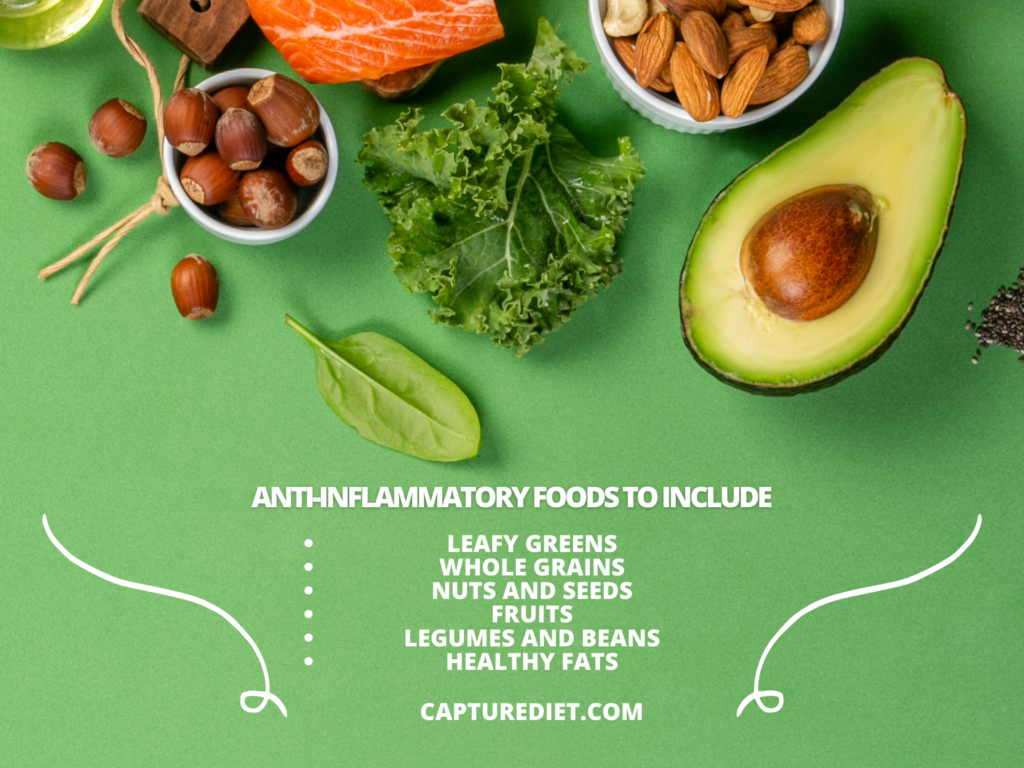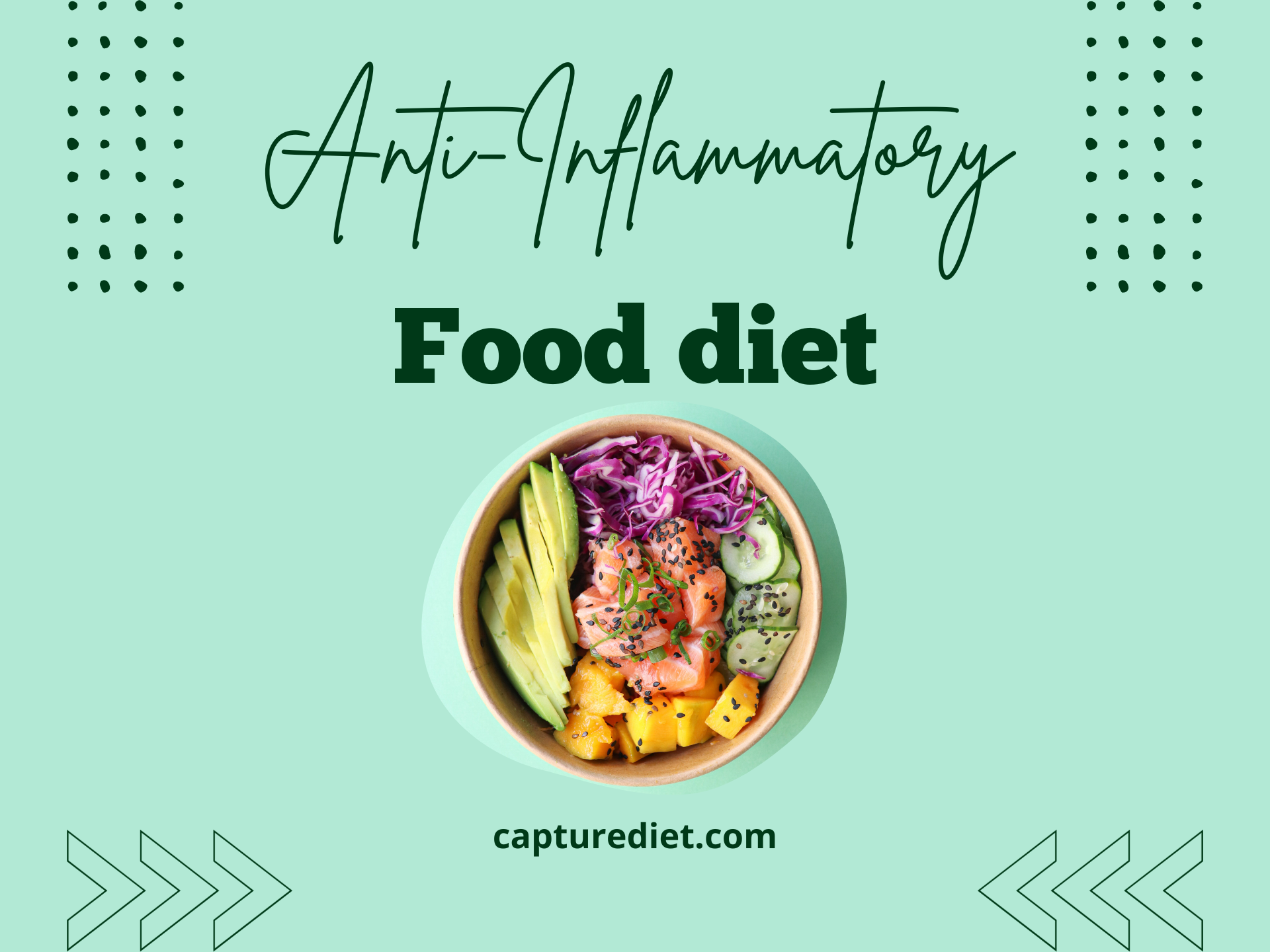Introduction
We live in a world where inflammation is becoming increasingly common due to our hectic lifestyles, diets, and exposure to environmental toxins. So, it’s crucial to take charge of your health by adopting an anti-inflammatory diet. In this guide, we’ll explore the benefits of a plant-based diet that can help unlock your health potential.
Table of Contents
1. Understanding Inflammation
Inflammation is an essential immune response that helps our bodies heal from injuries and fight infections. However, chronic inflammation can lead to various health issues such as heart disease, diabetes, cancer, and obesity. To reduce inflammation, we need to focus on consuming a diet rich in anti-inflammatory foods.
2. The Power of a Plant-Based Diet
A plant-based diet consists of fruits, vegetables, grains, legumes, nuts, and seeds and excludes animal products like meat, dairy and eggs. Research has shown that plant-based diets can effectively reduce inflammation[^2^].
Benefits of A Plant-Based Anti-Inflammatory Diet
- Weight loss and management
- Boosted immune system
- Lower risk of chronic diseases
- Better digestion and nutrient absorption

3. Anti-Inflammatory Foods to Include
To create a well-balanced, anti-inflammatory, plant-based diet, include the following food categories:
- Leafy greens: Kale, spinach, and collard greens represent nutrient powerhouses packed with vitamins, minerals, and antioxidants.
- Whole grains: Brown rice, quinoa, and whole wheat are rich in fiber and help regulate blood sugar levels.
- Nuts and seeds: Include foods such as almonds, walnuts, chia seeds, and flaxseeds to obtain healthy fats and essential nutrients.
- Legumes and beans: Lentils, chickpeas, kidney beans are great sources of plant-based protein and dietary fiber.
- Fruits: Opt for strawberries, blueberries, oranges, cherries that contain powerful anti-inflammatory properties.
- Healthy fats: Include avocados and olive oil to your diet to reduce inflammation.
4. Sample Meal Plan
Here’s a sample 1-day meal plan to kickstart your plant-based anti-inflammatory diet:
Breakfast: Overnight oats with fresh berries
- Mix rolled oats with almond milk or coconut milk
- Add chia seeds and maple syrup
- Layer the mixture with fresh mixed berries
Lunch: Quinoa salad with kale
- Toss cooked quinoa with chopped kale
- Add chickpeas for extra protein
- Dress with balsamic vinaigrette
Snack: Hummus with raw veggies
- Blend chickpeas with garlic tahini paste, lemon juice
- Add extra virgin olive oil for smoothness
- Serve with sliced carrots and cucumber
Dinner: Lentil soup topped with fresh herbs
What is inflammation, and why is it important to address?
Inflammation is a natural immune response, but chronic inflammation can lead to various health issues. Addressing it is crucial to prevent conditions like heart disease, diabetes, and obesity.
How does an anti-inflammatory plant-based diet differ from other diets?
An anti-inflammatory plant-based diet focuses on whole foods like fruits, vegetables, nuts, and seeds while excluding animal products. It’s designed to reduce inflammation in the body.
Can you explain the role of plant-based foods in reducing inflammation?
Plant-based foods are rich in antioxidants and nutrients that help combat inflammation and support overall health.
Are there specific foods that should be avoided in an anti-inflammatory diet?
Processed foods, sugary beverages, and excessive saturated fats are best avoided on this diet.
What are the potential health benefits of adopting this type of diet?
Benefits include weight management, a stronger immune system, reduced risk of chronic diseases, and improved digestion.
Is it challenging to get enough protein on a plant-based anti-inflammatory diet?
Not at all. Legumes, nuts, seeds, and plant-based protein sources provide ample protein.
Are there any tips for meal planning and grocery shopping on this diet?
Plan meals around whole foods, read labels carefully, and focus on fresh, unprocessed ingredients while shopping.
Can children and teenagers follow an anti-inflammatory plant-based diet safely?
Yes, with proper planning to ensure they receive essential nutrients for growth and development.
Are there any potential side effects or considerations when transitioning to this diet?
Some people may experience digestive changes initially, but these usually improve over time.
How can I maintain variety and enjoyment in my meals while following this diet?
Experiment with different plant-based recipes, spices, and herbs to keep meals exciting and flavorful.

